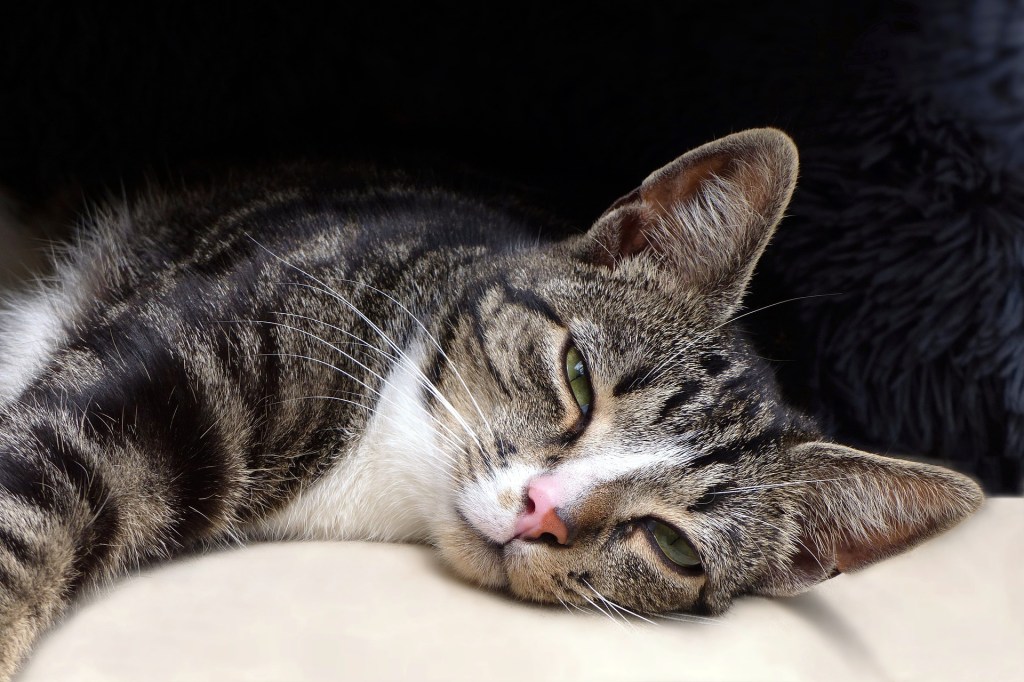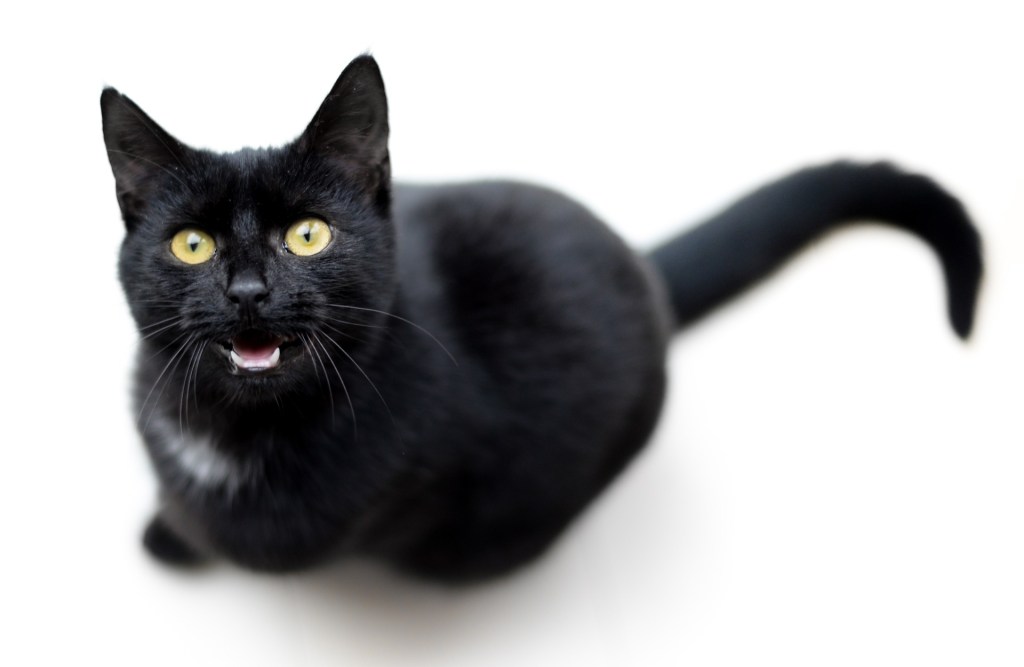If your cat rubs his head against you, meows, or even rolls over and exposes his belly, you might assume that he’s playing or just fooling around. If you make that assumption, though, you would be overlooking your cat making several different attempts to try to communicate with you. Cats rely on many forms of communication, including sounds and body language, to get their messages across, but if you don’t understand just how cats communicate, it’s easy to miss these signals. Those behaviors that you think are a little strange aren’t actually that strange at all. Your cat is just communicating with you in his own special way.
Rubbing against you
You might think that your cat is rubbing against you in play or to scratch that itchy spot he can’t reach, but he’s actually communicating through scent. According to cat behavior consultant Marilyn Krieger, as interviewed by Catster, your cat uses scent to identify his friends and family, as well as his enemy.
When your cat rubs against your leg, arm, or other body part, he’s transferring his scent onto you. This behavior shows that your cat accepts you as one of his own and is marking you as his.

Blinking
Your cat even uses his eyes to communicate with you. According to Pet MD, hard, fixated eyes can indicate that your cat is feeling nervous about something. But if your cat is trying to communicate trust, he’ll often relax his eyes and demonstrate a slow, lazy blink.
This slow blink communicates affection and trust since your cat is literally closing his eyes briefly while in your presence. It often indicates that your cat is feeling comfortable and relaxed, and you might notice your cat doing this behavior while he’s sitting next to you or watching you from across the room.
Exposing his belly
If your cat rolls over and exposes his belly, he may not be playing. Pet MD also reports that exposing his belly can be a way for your cat to ask you for attention including petting. If your cat rolls on his belly, he’s demonstrating that he trusts you, since he’s exposing this vulnerable part of his body while also being positioned so that he can’t easily run away.
You might notice your cat does this move while he’s already next to you on the couch, or while you’re already petting him. He’s probably encouraging you to pay attention to him and even rub his belly gently.

Meowing
While it’s typical to hear your cat meow, what makes this behavior unique is that cats reserve it just for humans. According to Pet MD, cats really don’t meow at other cats. (Kittens are the exception, and they meow when they’re hungry.)
So, if your cat meows at you, take it as a compliment. Your cat may be trying to get your attention, asking for food, or encouraging you to pet him. If you listen closely, you’ll find that your cat has many different meows, including one for when he’s hungry, one for when he’s trying to get your attention, and one for when something is wrong. Pay close attention and you’ll likely learn to recognize what your cat is trying to communicate to you, just based on his meow.
Head bumping
The Pet Care Clinic of Doral notes that cats have scent glands just above their eyes and below their ears. These glands excrete pheromones, and when your cat head bumps you, he’s rubbing those pheromones onto you. This is similar to what your cat accomplishes by rubbing himself against your legs and arms; he’s ensuring that you smell like him and is essentially saying that he loves you.
What’s your cat telling you?
Cats communicate in many different ways, and sometimes these behaviors can appear strange at first glance. The more that you study your cat, though, the more you’ll be able to understand just what he’s trying to communicate. Since many of your cat’s communication methods, like slow blinking, are not vocal, studying feline body language can give you additional insight into how your cat communicates. While many of the above behaviors are normal forms of feline communication, keep in mind that if you notice sudden changes in these behaviors or if your cat seems to suddenly be exhibiting these behaviors excessively, he might be seeking comfort and conveying that he’s in pain. Don’t be afraid to give your vet a call if your cat’s behavior changes and you think something might be wrong.


